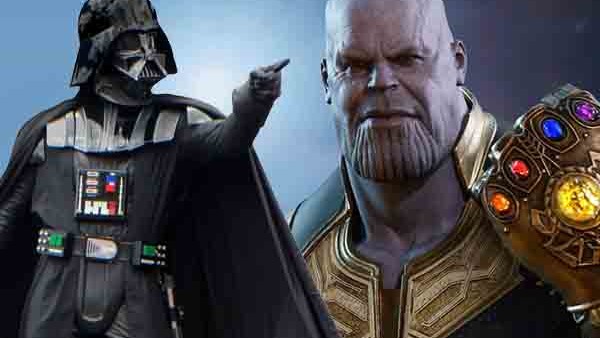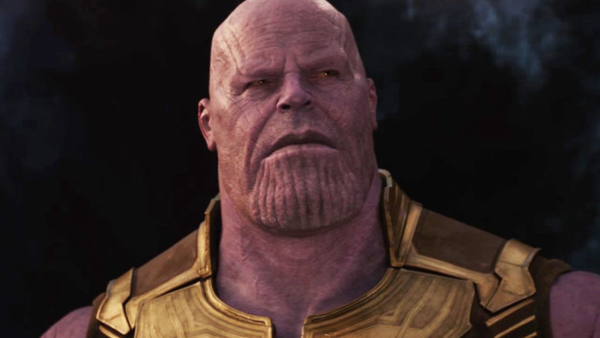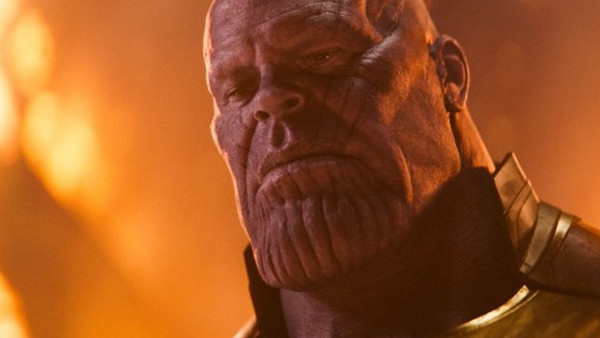Avengers: Infinity War - Why Thanos Is A Better Villain Than Darth Vader
Battle of the bad dads...

Whenever there's a Marvel movie release heading into, the same question gets thrown about almost casually: will this finally be the movie that solves Marvel's long-running issue with villains?
Recently, we've had big successes thanks to Daniel Bruhl's Zemo in Captain America: Civil War, Michael Keaton's Vulture in Spider-Man: Homecoming and Michael B Jordan's Erik Killmonger in Black Panther, but even then, their successes have been relative to the low-points in the MCU. And even Hela and Ego left a lot to be desired despite excellent casting and good stories to play with.
The problem for Marvel is that - aside perhaps from Loki - they don't have any villains who will ever be as memorable as their heroes, partly because of the value their stories place on heroism. They're wholesome - this is Disney after all - and there isn't the kind of commitment to make evil cool as you find elsewhere.
The MCU has never mythologised its baddies in the same way that Star Wars treated Darth Vader or DC lovingly paint The Joker: Loki is the only villain with that kind of longevity who they seem to have treated with anything like that sort of approach, and even then his allegiance changes so frequently it's hard to really call him a villain any more. But with Thanos, it's different and the results are really quite stunning.
Because - and this is no exaggeration - Thanos in Infinity War is a better villain than Darth Vader.

Somewhat stunningly, Joss Whedon previously said that he didn't want to work with Thanos much because he simply didn't know how to make him relatable. He called him "the overlord of villainy and darkness" and mostly seemed to be setting him up to appear in Avengers 3, but if he didn't know how to make him relatable, we should all be thankful that Whedon left after Age Of Ultron "broke" him.
In his place, we got the Russos, buoyed by two MCU successes (both with good villains, one of whom was truly great) and an agenda that they spelled out pretty consciously ahead of release. As the clock ticked towards Infinity Day (as it should definitely be known), Joe Russo offered his hoped that they could make Thanos "a Darth Vader for a new generation."
He told Empire that the directors hoped that "he has that complexity to him, and that he strikes fear into the heart of the audience, but at the same time they go on a journey with him" and reiterated that he's basically the star of Infinity War. On reflection, at the time that seemed that the kind of bluster you'd expect from a director trying to hype their movie and that grasping at a name like Vader was a cynical ploy for publicity. Of course they'd want that, who wouldn't want to emulate one of the greatest villains of a generation? One of the greatest villains of ALL TIME!
Fast forward to the wake of Infinity War's first screenings and the most stunning revelation is that the Russos not only emulated Vader, they surpassed him. Thanos is even better.
In a straight shoot between the two, you have to evaluate what Vader did best. He was - as Joe Russo said - capable of striking fear into the hearts of those who encouter him, both on-screen and off- He was a force of nature, whose mere presence was enough to bait a huge reaction, and whose mythology was very similar to the kind usually associated with horror movie monsters. Watch his cameo in Rogue One back - that wordless, bloody frenzy is a pure distillation of everything that Vader was to fans and to the film-makers.
What he wasn't was particularly complex, at least until the end of his arc and his heroic turn on his villainous master, Darth Sidious. If the prequels taught us anything, it's that attempting to add complexity to a character who works with such immediacy and such mystery as Vader is a fool's errand. It takes too much away from the character when it wasn't built in in the first place.

Thanos, on the other hand manages to hit both beats. He is as imposing a presence - despite a far more difficult look to sell (he's a big purple monster after all) - he strikes fear and he has the same devastating impact on his enemies. And that's a big part of the Russos' success with him: they've spoken at length - and so has Kevin Feige - about delivering on the ominous threat that's been seeded for Thanos, and within a matter of minutes of his arrival he's shaken the MCU to its core in the most devastatingly casual fashion.
But where he absolutely outstrips Vader is in the very area that Whedon seems to have suggested he'd be problematic. Because despite the fact that he's a giant purple space alien who wants to wipe out half of existence, he's perversely relatable. You find yourself agreeing with what he believes just enough to catch your breath. Unthinkably, he's actually pretty sympathetic - particularly when he is forced to make his own world-changing decisions to show his conviction.
He isn't just an iconic costume or a collection of heinous acts - what makes him even more terrifying is the fact that he's understandable, that he's written with as much complexity as the heroes (in some cases more) and that he has layers. Like an ogre. Or an onion.
As promised, he is the main character of Infinity War and more importantly, he's also the stand-out character. Considering he's competing with the likes of Iron Man, Captain America and Thor - who have each had at least five movie appearances to develop - that fact is as remarkable as it is brilliant. And if the Russos' aim was to make a villain who will go into that special archive of Best Villains Ever, they succeeded in spades.
Do you agree? Disagree? Share your thoughts below in the comments thread.